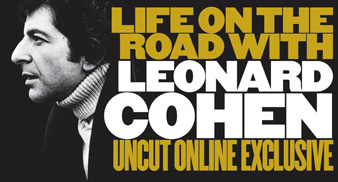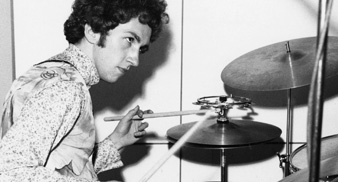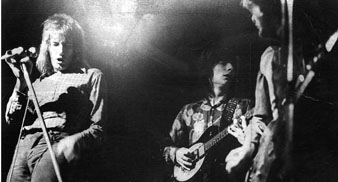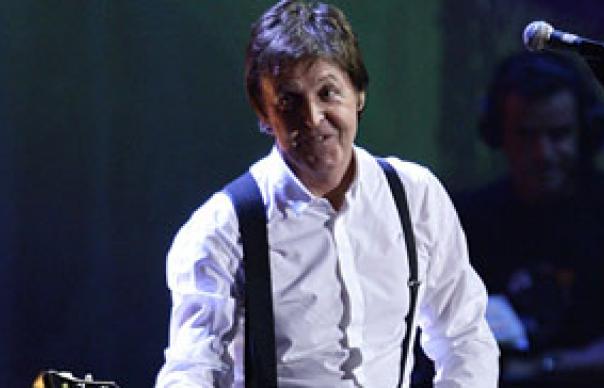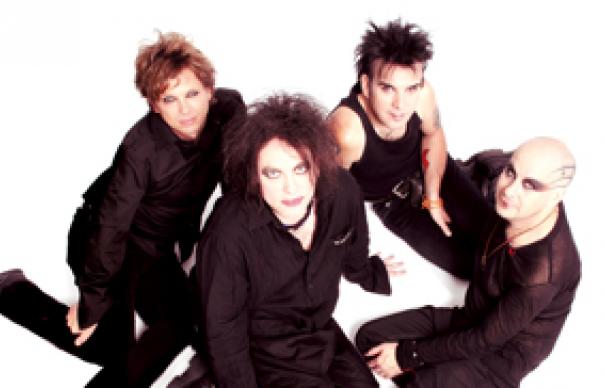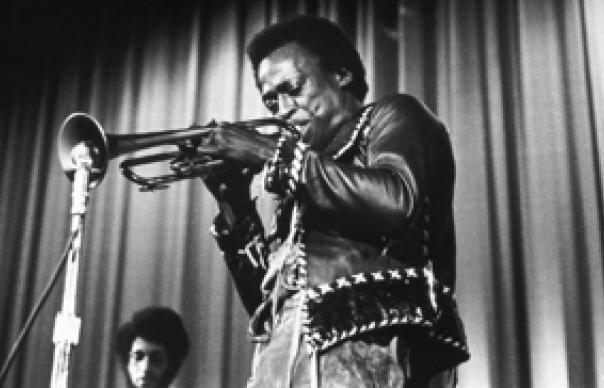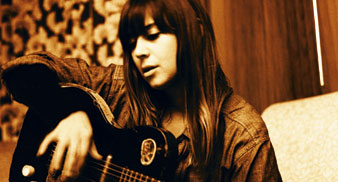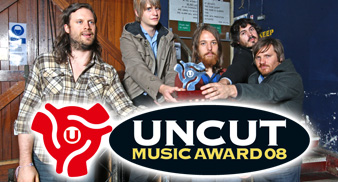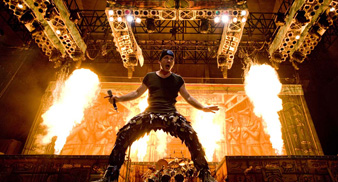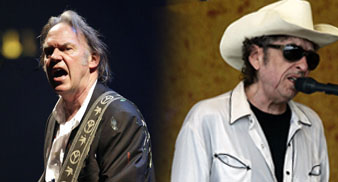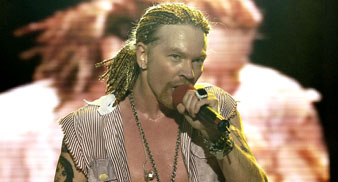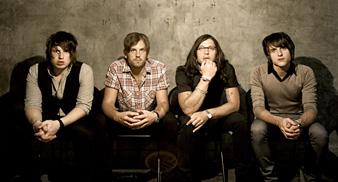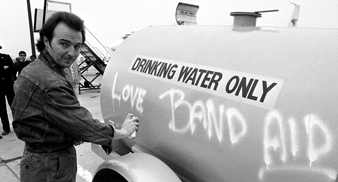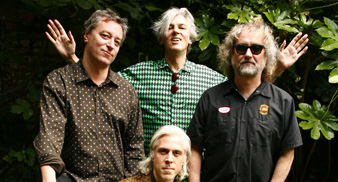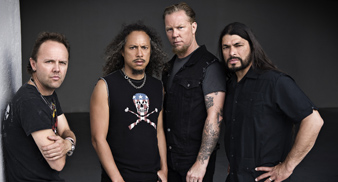Finally, we're pleased to announce that the winners of the first Uncut Music Award are Fleet Foxes for their debut album, "Fleet Foxes". Over the next couple of weeks, we'll be posting transcripts of the judges' deliberations here. Today, we start with the judges' summing-up. . .
Alison Howe: We’ve got the right winner. Fleet Foxes have made the record of the year, I don’t think there’s any doubt about that. It’s different, it’s brave, it’s fresh, it’s very likeable, it makes you feel good and that’s what’s important in a record. It does feel different to other records, and it’s grown over the year that it’s been around, and it looks like it’s going to continue to grow. That’s the sign of a really good record, I think, it’s not over before it’s started. They made their TV debut in this country on Later..., which was great. I’d been waiting for pretty much a year to have them on, and they’ve been kind enough to hang on for us until our schedules coincided. I think it was a good time to have them on because more people were aware of the record.
Linda Thompson: I thought it was an excellent shortlist. I’m very happy with the outcome. Fleet Foxes wasn’t my personal favourite, I loved The Raconteurs and I loved Vampire Weekend because it was so zeitgeisty. I don’t personally take a lot of notice of awards because there’s hardly ever any folky records singled out. But I think it’s wonderful to win awards, I can never understand people who say they don’t care about it, it’s fantastic to win awards.
Mark Radcliffe: The deliberations were surprisingly cordial, really. There was no-one who violently hated any of the records we ended up with, which is the way it should have been. There’s no point trying to fabricate friction, and there was nobody passionately opposed to any of the records in the Top Eight. There were two or three that I didn’t think were anywhere near as good as the others, but it was all terribly civilised. I think we had a pretty clear winner, there was a bit of wrangling and deal-doing on the second and third which was more contentious, but the clear winner was Fleet Foxes which is my record of the year by a long way. It might be my record of several years. I just think it’s an extraordinary piece of work, and I think it’s a worthy first winner of the prize. It’s a beautiful vocal creation, it’s a record that seems to have echoes of all kinds of indigenous American music, but also African music and even medieval strains. The instrumentation just fills in around the vocals as necessary. All the songs on the album are absolutely brilliant, and it just has a magical, ethereal quality.
Danny Kelly: Without sounding too noncey about it, it was a great honour to be asked to do this, and it was also a great laugh. We had a vast number of records sent over to us, which we had to cut down to a shortlist, and what I thought would be a very, very difficult argument with arm-wrestling and punching women turned out to be much more civilised than that. I thought the Fleet Foxes was the best record, and most people seemed to agree; everyone seemed to love the Vampire Weekend to a certain extent, but after that people started to get a bit antsy. People started saying that they wanted their first choice to at least make the podium, I want it to get some kind of medal. It came down to The Raconteurs or Radiohead, which was a very difficult one to split, I think, because if you liked one you were liable to like the other. They’re both very crunchy rock ‘n’ roll records.
As for the Fleet Foxes, people are making fantastic records all the time, but it’s rare that one comes along that absolutely blows your mind. You think, what? Where? Where did they decide to make a record like this? What meeting, what coffee house, what pub were they sat in when they said “We’re gonna make a record where you can hardly hear any rhythm in it, just voices drifting in and out”. Some of it sounds like church music, some of it sounds like The Beach Boys, it’s just an amazing record and I was really happy that not only have people found it but that they really like it. It’s one of those records that will stand the test of time.
I’m not sure about Vampire Weekend, I honestly think that might sounded dated some time in the future, particularly if other bands start trying to do that kind of innocent indie mixed with other kinds of world music. I don’t think the Fleet Foxes will. I’m not saying they’ll ever make another great record, because I think this is such an achievement that I can’t see where they can go with it myself. It’s also one that is utterly, utterly loveable. You often hear brilliant records, like the Radiohead one is a brilliantly made record, but it holds me at arm’s length because it’s so brilliant and it’s so mechanical. With the Fleet Foxes, though, you just want to fall into it.
Tony Wadsworth: We all had our own favourite albums, but we sat around and talked about the various merits of all of them. The key thing was that every album on the shortlist was something we all loved to different degrees. I came in wanting Elbow to win, because it’s my favourite album of the year, I think it’s got everything. It’s passionate, it’s got great songwriting, it’s really well produced, it’s a tremendous album from the north-west of England.
But I was very happy with the outcome, because the Fleet Foxes album is just such a beautiful breath of fresh air. Great singing, great harmonies, it’s got real merit. I was also really pleased to see Radiohead in the Top Three, because I think they’ve probably made their best album. I think it’s their soul album; listening to a lot of those songs I can hear Curtis Mayfield or Bob Marley. There are some beautiful songs on there, one in particular, “Numb”, I remember them recording around the time of OK Computer, it’s such a beautiful, gorgeous song. The paranoid record executive in me felt they left it off OK Computer because we all loved it so much, but I think the reality of it was that they just didn’t feel like they’d made the best possible version of it.
They’ve played it a lot live leading up to recording this album, and they’ve nailed it. It’s a great version of what is just a fantastic song that I’ve heard in so many different version before. I think In Rainbows brings together all the best things about Radiohead, I think it pulls in all the different strands of the group. By being a judge for this, I’ve completely discovered The Felice Brothers, who I was completely oblivious to, which is amazing because they seem to be influenced by some of my favourite music of all time. Probably my favourite band of all time is The Band, and The Felice Brothers seem to be so influenced by them that they’ve almost become them. That would be my only criticism of them, really, it’s so close to The Band. But, yeah, I’ve discovered some really good new bands.
Allan Jones: We were having a chat in the office about other award ceremonies, and we thought that it was about time, after 10 years of Uncut, that we joined that group of magazines that regularly give out awards. We decided to concentrate on what we’re most interested in, the music. We thought what could be simpler than an award for the very best album of the year, the most exciting, the most inspirational, and that there should be no frontiers involved. So we wanted it to be an international award, as opposed to some others that are just UK-based.
We drew up an original longlist of 25 albums, which was whittled down to eight. We composed the longlist based essentially on looking back over our reviews sections over the last 12 months to look at the albums that we’d championed, basically the albums that excited us. From there, we drew up the shortlist of eight that we debated today.
We decided to get as cosmopolitan a list of judges as possible. We wanted some broadcasters, some writers, some musicians where possible, a variety of people from different backgrounds. People who loved music, basically, people who would be really into the judging process. When we were thinking about the panel, who greater would there be from the music industry than Tony Wadsworth, who’s had a great history with EMI Records, worked with a lot of incredible bands with incredible talent? Linda Thompson, we love her music, we thought she could bring something different to the panel. We also recognised that Later... is a television show that has a lot in common with Uncut, the kind of music that it champions, so we thought Alison Howe would be a perfect choice for our panel. Mark Radcliffe has also been a champion of great music, is very articulate, very passionate about music, we thought he’d be absolutely perfect for our panel. Danny Kelly, an old contemporary of mine, former editor of NME, is not so involved in music any more but still passionately in love with the music that we write about. We thought he would be a fresh and instinctive voice.
I thought it might have turned into a bit of a bloodbath, I didn’t really know what these people would be like in terms of discussing the music, how passionate they would be about the records that I knew they’d voted for in the preliminary round, how hard they would be to budge from those opinions, but as the discussions wore on people were very, very articulate about their choices. There was some persuasion, a couple of people began to change their minds over certain records. It didn’t get as heated as I thought it might. Fleet Foxes, the eventual winners, were a group who’d impressed everybody thoroughly for kind of all the right reasons. That’s a record I think is unique to this year, and will remain unique for many years to come. It came out of nowhere, you couldn’t have predicted its existence.
This generally has been a brilliant year for music, most years are great for music, there’s always somebody making a row somewhere. And although this is the first year we’ve done an award, it certainly won’t be the last. Good music will always continue to be made somewhere, in a basement or a back room, and it’s going to need championing. One of the reasons Uncut is here is to champion great new music as well as celebrate and recognise icons like Dylan, The Beatles, The Who, The Kinks, the Stones, so this will go from strength to strength, I think. The response I’ve had from a lot of people in the music industry has been incredibly positive, I think just because of the simplicity of the award, the purity of it, if you like, it just goes to the best piece of music of the year. It’s just for that one piece of music that means the most to everybody.


